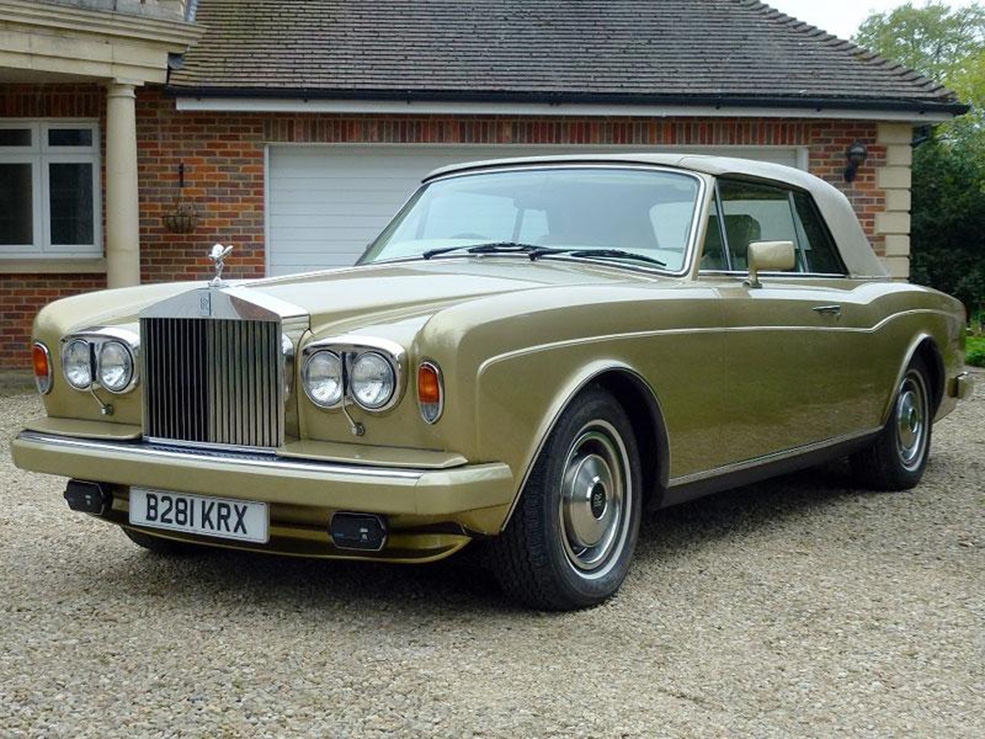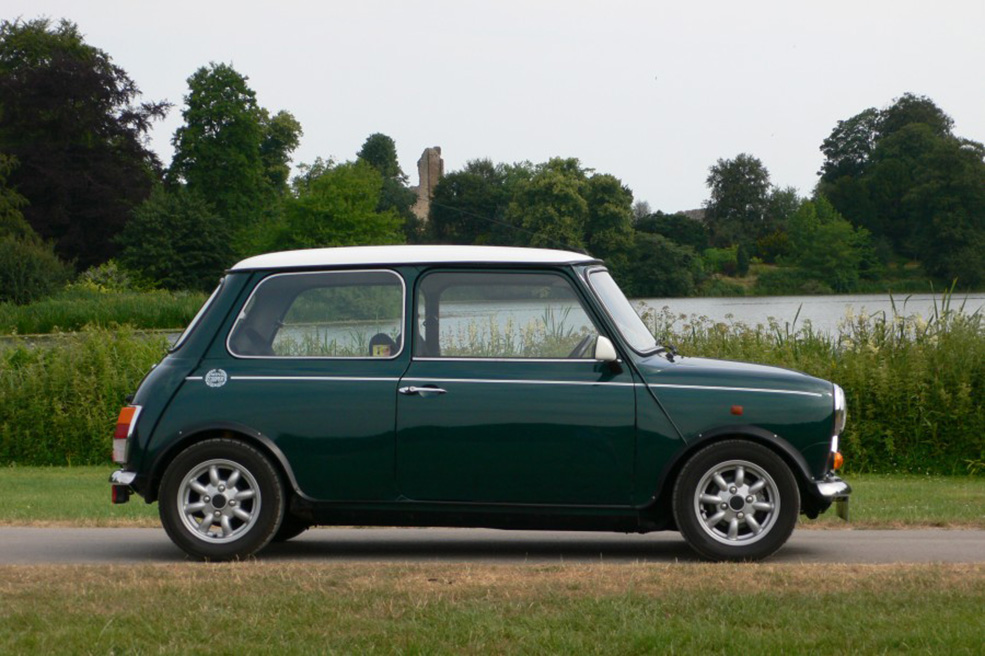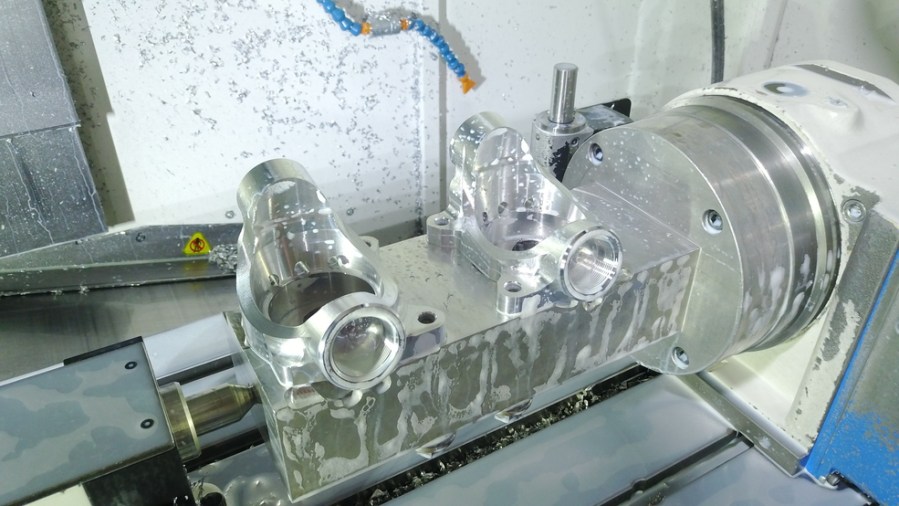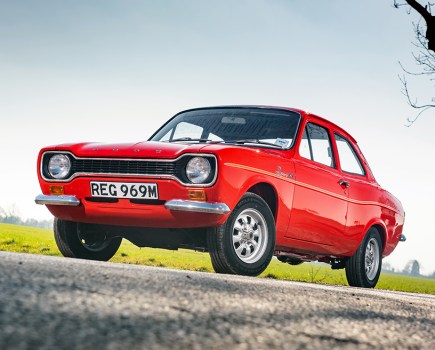The increasing likelihood of a ‘no-deal’ Brexit next March continues to send shockwaves through the automotive industry, with Bentley the latest UK-based manufacturer to warn that no trade agreement could hurt its sales and lead to a temporary shutdown of its factory. The signs continue to look ominous for the new car industry, but what about parts manufacturers and specialists dealing with classics? As Classic Car Buyer has discovered, the future could be a lot brighter.
UK-based car manufacturers such as MINI rely on a ‘just in time’ supply chain to cut down on their inventories, with the majority of components coming from the EU. The extra admin burden placed on parts getting through a hard border between the UK and the Continent is likely to mean major disruption and shortages of parts, while extra tariffs could run into tens of millions of pounds and ultimately make business unsustainable.
The Society of Motor Manufacturers and Traders (SMMT) reckons that it’s the smaller firms in the supply chain that are at higher risk. It suggests that the vast majority of the companies in the automotive supply chain are so-called Small and Medium Enterprises (SMEs), with some 69 per cent employing fewer than 10 people. New requirements for companies trading internationally after a no-deal exit will include calculating the value of goods and proving the origin of parts as well as warehousing and paperwork requirements.
But while this bureaucracy will undoubtedly place a burden on smaller teams, there is much potential for a positive upside too. If a so-called hard Brexit puts barriers up to international trade, it stands to reason that businesses will be forced to look inward and source parts domestically. That’s a real positive for the UK’s classic car parts manufacturers and specialists – especially where British classics are concerned. The lack of tariffs and border hassle could make a UK part that much more competitive compared with an EU part.
Many years ago, almost all parts for British classics would have been made domestically, but market forces have pushed firms into sourcing cheaper product from overseas. Many British suppliers do import items from the likes of China and other EU countries of course, but you may be surprised as to how many parts are still produced by British manufacturers. Take Rimmer Bros, for example. Sales and Marketing Manager Andrew Mundy told Classic Car Buyer that some 80 per cent of its suppliers are in the Midlands, and it generally tries to locate the original supplier for its parts as all the expertise and manufacturing is located in the UK.

Other specialists paint a similar picture. We spoke to John Tupper of Introcar, a Rolls-Royce and Bentley specialist, who shared concerns over the extra administrative burden placed on companies but also highlighted the adaptability of Brits and their national strength in turning necessity into a virtue.
From John’s experience, UK manufacturing is already hard at work, and if anything, needs to expand even further. While parts for modern Rolls-Royce and Bentley models will generally come from Europe as they are German platforms, a surprising amount of his product is sourced domestically. “Engineering companies in the UK are very busy, with many working 24/7 to meet demand,” said John. “Also, several engineering firms disappeared in the 2008 recession, meaning a further squeeze on supply.”
One of the companies directly at the heart of UK parts manufacturing is Mini specialist Mini Sport, which has already expanded to meet growing demand. The company offers parts, service and restoration, but is also a manufacturer. As well as producing the aftermarket Paddy Hopkirk and Cooper Car Company ranges at its Lancashire premises, plus a range of performance items, it also manufactures regular replacement parts such as drive flanges, suspension knuckle joins, rockers and rear hubs.
“The engineering side is our biggest growth area and we’re still investing,” explained Managing Director Chris Harper. “We’ve got another £750,000 worth of machines on order, and we’ve already taken on new people. It’s all positive. And we don’t just deal with the Mini side – it’s right through the whole automotive industry from our point of view. Our current focus is on supporting the UK as opposed to going elsewhere. It may cost more in the short-term, but in the long run I think it will be beneficial.”

Chris believes that companies like Mini Sport have a strong hand to play whatever the outcome next March. “Whether there’s a deal or no deal, as a company we’ve got to be able to react to all eventualities, and from an engineering point of view, we’re already set up to do that,” he says.
While Chris feels that exports may be more difficult, ultimately the UK is in a good position in this regard, particularly when it comes to British classics. “People in the rest of the EU will still have to buy parts from the UK. If they don’t already make it there then they aren’t going to start – the market is not big enough for that. I think we’re already seeing a resurgence because all the technology and knowledge is based here. The engineering skills in this country are second to none – that’s why all the Formula One teams are based here.”
But what about classic that weren’t British-made? We spoke to VW and Porsche specialist Heritage Parts Centre, where PR Manager Andy Gregory painted an unexpectedly positive picture. You might expect a German car parts specialist to be trading pretty much exclusively with European suppliers, and yet a large proportion comes from non-EU countries like Brazil, Mexico and South African where VW had a big manufacturing presence. More notably, some 30-40 per cent of its range is sourced in the UK.
While there are undoubted hurdles to clear in the event of a ‘no deal’ and repercussions will doubtless be felt, the UK’s classic parts industry already appears to well poised to cope. And if they need to expand and take on extra staff to meet an increasing burden, that can only big a good thing for the industry. As with so many Brexit-related issues, only time will tell.





